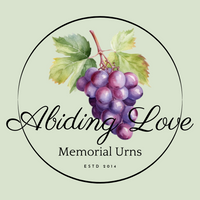
Choosing a Catholic Urn: Combining Faith and Design
Selecting an urn for a Catholic loved one is a deeply personal decision, combining the sacred traditions of the Catholic faith with the desire to honor the individual’s unique life. The urn not only serves as a final resting place but also as a reflection of their beliefs, values, and personality. In this guide, we’ll explore how to thoughtfully choose an urn that resonates with Catholic symbols and religious significance while incorporating design elements that make it truly personal.
1. The Importance of Faith in Choosing a Catholic Urn
For Catholics, the funeral and burial process is filled with rituals that reflect the Church’s teachings on the afterlife. Catholics believe in the resurrection of the body and the hope of eternal life with God. This belief is often symbolized through the choice of religious imagery and thoughtful designs that echo the deceased’s faith and spiritual journey.
When selecting a Catholic urn, families often prioritize:
- Religious Symbols: Crosses, crucifixes, the Virgin Mary, saints, and angels are common motifs that carry deep meaning for Catholic families. These symbols represent the deceased’s relationship with God and their devotion to the Church. Incorporating such symbols into the design of the urn serves as a reminder of the hope of resurrection and the eternal life promised by Christ.
- Inscriptions and Engravings: Many families choose to include religious quotes, Bible verses, or prayers on the urn. Engravings such as "Eternal Rest Grant Unto Them, O Lord" or "In God’s Loving Arms" are popular choices that reflect the faith and devotion of the departed.
2. Materials and Craftsmanship: Reflecting the Beauty of Creation
The Catholic tradition places great value on creation, seeing the natural world as a reflection of God’s glory. This belief extends to the materials and craftsmanship used in the urn.
- Wood Urns: Wooden urns are a popular choice for Catholic families due to their warmth and natural beauty. They can be made from a variety of woods, including oak, cherry, walnut, or mahogany. The grain of the wood and the care put into its construction can be seen as a testament to the beauty of God’s creation.
- Marble and Stone Urns: These materials, often associated with strength and permanence, can evoke a sense of timelessness and eternity. Marble and stone urns are also frequently used in more traditional or ornate Catholic designs, symbolizing the everlasting nature of the soul.
- Metal Urns: Metal urns, made of brass, bronze, or stainless steel, can also reflect religious values of strength and purity. These urns often feature intricate engravings of religious symbols or are adorned with sacred images that honor the faith of the deceased.
Choosing the right material for the urn is a personal decision that allows families to reflect both the natural beauty of the earth and their loved one’s unique spirit.
3. Personalizing the Urn: Combining Faith and Individuality
While Catholic urns often feature religious elements, it’s also important to incorporate personal touches that celebrate the individual life that was lived. There are many ways to personalize an urn to ensure it becomes a unique tribute to your loved one:
- Adding Personal Symbols: In addition to religious imagery, consider incorporating symbols that represent the deceased’s passions, hobbies, or personality. For example, an urn might include a symbol of nature, such as leaves or birds, if your loved one enjoyed the outdoors. If they had a favorite saint or devotion, that figure could be prominently featured.
- Custom Engravings: Inscriptions can go beyond religious phrases to include the person’s name, birth and death dates, or a favorite quote or prayer that held special meaning to them. Custom engravings ensure that the urn truly reflects the individual’s spirit.
- Incorporating Family Heritage: For many Catholic families, faith and family are inseparable. Consider incorporating elements of your family’s heritage into the urn, whether through specific colors, cultural symbols, or traditional designs that honor your loved one’s ethnic background and family traditions.
4. Working with an Artisan
If you are looking to create a truly unique urn, consider working with a skilled artisan who specializes in custom urn designs. Artisans can combine traditional Catholic symbols with personalized elements that make the urn a one-of-a-kind tribute. The process of designing a custom urn allows families to be actively involved in choosing the design, materials, and engravings that best reflect their loved one’s faith and personality.
When working with an artisan, you can also incorporate specific religious requests, such as a compartment for holding a rosary or holy water. This level of personalization adds an extra layer of meaning to the memorial, ensuring that it becomes a cherished family heirloom for generations to come.
5. Choosing an Urn for a Catholic Columbarium
Many Catholic families choose to have their loved ones interred in a columbarium niche at a Catholic cemetery. When selecting an urn for a columbarium, it’s important to ensure that the urn meets the size requirements of the niche. Catholic columbaria often have specific guidelines regarding the size, material, and design of the urns, so it’s essential to check with the cemetery before making a final decision.
In addition, some families may choose to personalize the columbarium niche with religious items, such as crucifixes, prayer cards, or flowers. The urn should complement these elements while also serving as a focal point for prayer and reflection.
Conclusion
Choosing a Catholic urn involves balancing the rich traditions of the Catholic faith with the desire to honor your loved one’s unique life. Whether through religious symbols, personalized engravings, or carefully chosen materials, the urn becomes more than just a vessel for remains—it becomes a lasting testament to faith, family, and the beauty of a life well-lived.
By thoughtfully combining elements of faith and design, you can create an urn that honors both the spiritual and personal legacy of your loved one, offering comfort and peace to those who remain.





Leave a comment